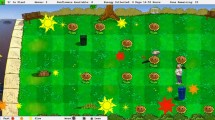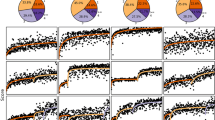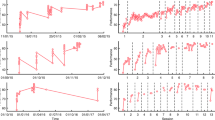Abstract
This chapter presents the results from a study examining the relationship between practice, performance, and learning. We compared two versions of an intelligent tutoring system differing only in the number of problems that needed to be solved per problem set (Abbreviated = 3 problems, Extended = 12 problems). Our hypotheses were that Abbreviated subjects, in comparison to Extended subjects, would: (a) take less time to complete the tutor because they had fewer problems to solve, (b) perform worse on the posttest measures (accuracy and latency), and (c) demonstrate poorer transfer of knowledge and skills across tutor problems given fewer practice opportunities. We found that, while Abbreviated subjects did take significantly less time to complete the tutor than Extended subjects, both groups performedequally across all outcome measures. Componential skill analyses enabled us to track the course of skill acquisition during practice, and predict the degree of skill transfer afterward. We conclude with suggestions for the development of efficient automated instruction.
Access this chapter
Tax calculation will be finalised at checkout
Purchases are for personal use only
Preview
Unable to display preview. Download preview PDF.
Similar content being viewed by others
References
Ackerman, P.L.: Determinants of individual differences during skill acquisition: Cognitive abilities and information processing. Journal of Experimental Psychology: General. 117, 288–318 (1988)
Anderson, J.R.: Skill acquisition: Compilation of weak-method problem solutions. Psychological Review. 94, 192–210 (1987)
Bryan, W.L., & Harter, N.: Studies on the telegraphic language: The acquisition of a hierarchy of habits. Psychological Review. 6, 345–375 (1899)
Carlson, R.A., & Yaure, R.G.: Practice schedules and the use of component skills in problem solving. Journal of Experimental Psychology: Learning, Memory, & Cognition. 16, 484 – 496 (1990)
Towne, D.M., & Munro, A.: Supporting diverse instructional strategies in a simulation-oriented training environment. In Regian, J. W. & Shute, V. J. (Eds.), Cognitive approaches to automated instruction. Hillsdale, NJ: Lawrence Erlbaum Associates 1992
Gagné, R.M., & Paradise, N.E.: Abilities and learning sets in knowledge acquisition. Psychological Monographs. 75, (14), (1961)
Gick, M.L. & Holyoak, K.J.: The cognitive basis of knowledge transfer. In: Transfer of Learning (S.M. Cormier & J.D. Hagman, eds.). New York: Academic Press 1987
Lesgold, A., Bunzo, M.S., McGinnis, T. & Eastman, R.: Windy, the Flight Engineering Tutor. Unpublished tutor. Learning Research and Development Center, University of Pittsburgh, Pittsburgh, PA. 1989
Lintern, G. and Gopher, D.. Adaptive training of perceptual motor skills: Issues, results and future directions. International Journal of Man-Machine Studies, 10, 521–551 (1978)
Schmidt, R.A. and Bjork, R.A.: New conceptualizations of practice: Common principles in three paradigms suggest new concepts for training. Psychological Science. 3, (4), 207–217 (1992)
Schneider, W., & Shiffrin, R.M.: Controlled and automatic human information processing. Detection, search, and attention. Psychological Review. 84, 1–66 (1977)
Shute, V.J .: A macroadaptive approach to tutoring. Journal of Artificial Intelligence & Education. 4(1), (1993)
Singley, M.K. & Anderson, J.R.: The transfer of cognitive skill. Cambridge, MA: Harvard Press 1989
Smith, S.: An analysis of transfer between tower of Hanoi isomorphs. Unpublished doctoral dissertation. Carnegie-Mellon University 1986
Woltz, D.J.: An investigation of the role of working memory in procedural skill acquisition. Journal of Experimental Psychology: General. 117, 319–331 (1988)
Author information
Authors and Affiliations
Editor information
Editors and Affiliations
Rights and permissions
Copyright information
© 1993 Springer-Verlag Berlin Heidelberg
About this paper
Cite this paper
Shute, V.J., Regian, J.W., Gawlick-Grendell, L.A. (1993). Modeling Practice, Performance, and Learning. In: Towne, D.M., de Jong, T., Spada, H. (eds) Simulation-Based Experiential Learning. NATO ASI Series, vol 122. Springer, Berlin, Heidelberg. https://doi.org/10.1007/978-3-642-78539-9_10
Download citation
DOI: https://doi.org/10.1007/978-3-642-78539-9_10
Publisher Name: Springer, Berlin, Heidelberg
Print ISBN: 978-3-642-78541-2
Online ISBN: 978-3-642-78539-9
eBook Packages: Springer Book Archive




